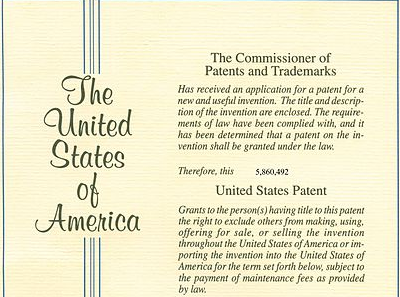Google has vowed that any patents it files relating to open source software will only ever be used defensively. Meanwhile Microsoft has unveiled the full details of its entire patent arsenal.
The Google promise is formally titled the “Open Patent Non-Assertion Pledge.” It will only apply to specific designated patents, which will all relate to technologies based on open source software. To start off with, 10 patents relating to map technology come under the pledge.
There’s a whole bunch of legal small print in the pledge, but the gist of it is simple: if Google has a patent on open source software and you use that technology for an open source project, Google won’t start a lawsuit against you.
That comes with two specific limitations. If you copy the technology and use it for a project that isn’t open source, you’ll be hearing from Google’s lawyers. Meanwhile if you accuse Google of copying you, Google will whip out the patent in its defense.
Google wants the pledge to become a widely adopted standard in a similar way to creative common licenses. It’s suggested the pledge be legally binding, though that might be tricky as it’s a unilateral promise rather than a contractual deal. Google also says the idea is that if you have a patent covered by the pledge, you should insist that anyone who later buys the patent from you must also stick to the pledge.
Microsoft is also trying to set an example in the patent market. It’s published a searchable database of all 40,785 patents that it currently holds. You can also download all of the data as a CSV file for more detailed searching.
The move appears to have two aims. Firstly, it’s a way of giving Microsoft added ammunition against anyone who might try to argue they were unaware that Microsoft held a particular patent.
Secondly, it’s designed to set an example to others by removing any mystery about who owns a particular patent. The list is billed as covering every patent ultimately owned by Microsoft, even if it stems from a subsidiary.
Microsoft argues that if everyone did this, it would be harder for patent trolls to file or buy a patent and then effectively keep it in hiding until they spot somebody unintentionally violating it.

